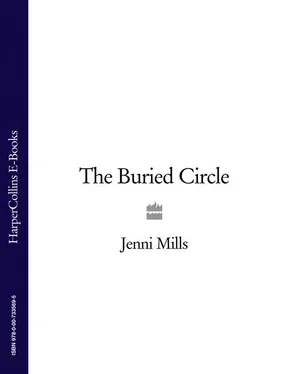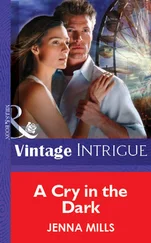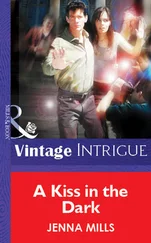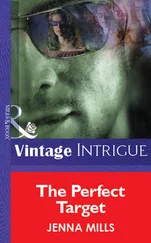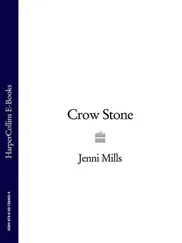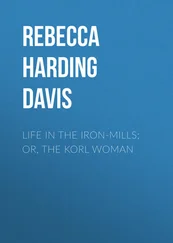1 ...8 9 10 12 13 14 ...27 The skyline is dotted with spiny beech hangers–the Hedgehogs, Wiltshire people call them–planted over ancient round barrows. The Ridgeway, a track even older, runs along the top of the Downs. When dusk gathers, it can feel like the loneliest place in the world up there, peopled only by ghosts.
A small red car with European plates is parked on the verge at Tolemac–the stretch of the lane I like least. The neat, wedge-shaped plantation of pine, ash, wild cherry and beech holds a particular set of memories from my own childhood and still gives me the jitters, all these years later. Bare twigs scrape against each other like dry, bony fingers. This afternoon woodsmoke is in the air: someone’s camping under the trees.
woodsmoke overlaid with the acrid smell of burning plastic, a van on fire, branches above it catching light. A cut on my hand, blood beginning to ooze between my small fingers …
Most of my itinerant childhood is a blur: odd moments caught in the memory crystals. My mother Margaret–Meg to her friends, but always Margaret to me–never had a job, unless you count dancing on stage with Angelfeather at free festivals. In winter we lived on benefits in Bristol, but in summer we followed the band from festival to festival in her decommissioned ambulance, painted purple. Stonehenge, Glastonbury, Deeply Vale, Inglestone Common; we wandered through Wales and stayed in tepees, we joined the women at Greenham and slept under plastic benders. And in 1989, the year they call the Second Summer of Love, we camped in Tolemac: our last summer together. I was eight. That year the ambulance had been replaced by a British Telecom van with windows hacked out of its sides and a door at the back. Because John hadn’t sealed the glass properly, everything leaked if it rained.
The first thing Margaret always did when we arrived at a new place was collect up her crystals, which always fell off wherever she’d put them and rolled around when we were travelling, and arrange them in their proper places. Black tourmaline outside the door, for protection and geopathic stress, in case she’d accidentally parked on a dodgy ley-line. Citrine in the money corner, behind the passenger seat, to dispel negativity and in the hope we might actually make some dosh that summer. Rose quartz behind the driver’s seat, in the equally vain hope that Margaret would find love. The irony was that she could have had love, if only she could have brought herself to accept it, from John. He’d done her van for her but she wouldn’t let him sleep in it with us: he was camping twenty yards away under his old green army poncho, like a faithful dog forced to sleep outside in its kennel. Then Margaret would go out and gather wild flowers to stick in a glass of water on the fold-down table. They’d be shrivelled and wilting by nightfall, but she always convinced herself they’d survive.
‘There,’ she’d say, every time when she finished these rituals. ‘Home.’
Behind me the red car starts up, its engine sounding like an old sewing-machine. I step off the road to give them room to pass, but it slows to a halt and the driver, a girl with hair chopped in a lank brown bob, winds down the window. She’s wearing an expensive mohair sweater. Not one of the campers, then. ‘Excuse me. This road takes us to Marlborough?’ Her accent is Germanic.
‘I’m afraid not. It ends up ahead.’
‘It goes to the Ridgeway, no? It shows it on our map.’
‘You can’t drive the Ridgeway. It’s not allowed. Anyway, you’d never make it without a four-wheel-drive. There’s a farmyard further on where you can turn.’
Her thin olive-skinned face settles into petulant disappointment as she slams the car into gear. The Road Less Travelled turns out to be a No Through Road. Isn’t it always the way? I get a fleeting memory of Margaret’s face the day Social Services took me to Frannie’s. The odd thing is, I remember there being tears in her eyes. Perhaps I’m imagining it, because I’ve always assumed it was a relief to her to be rid of me.
You’re too hard on her, Indy , says John.
The red car comes chugging back with part of the hedgerow attached to its bumpers. I send Margaret’s crocodile tears away with it, pffft , evaporating into the exhaust gases that hang on the frosty air, then wish I could call them back, make the tears real, make her real too. Sometimes I find it hard to recall what she even looked like.
High on the Herepath, the air is exhilarating. Everything is still crisp and clear, a last flush of brilliance before night, though light will already be fading in the fields below. The sun’s dropping fast, an egg-yolk stain seeping up from behind Waden Hill to meet it. I sit down on a sarsen. This one, bum-freezingly cold through my jeans, lives up to its geological past: a stone shaped and tumbled by ice sheets. Sheep baa somewhere below, as a farmer drives the flock into another field. Sound carries weirdly up here, especially on frosty air. John says there are places on the Ridgeway where you can hear voices from within the stone circle itself: Neolithic landscaping was about sound as well as space.
Some way off something splashes, startling me: a boot, maybe, in one of the water-filled ruts on the old chalk track. The gate at the top of the Herepath clicks as someone comes off the Ridgeway. There’s a whistle, and a dog comes racing across the field, like Whip used to when I called him.
He was my dog when I was small, but I lost him at the Battle of the Beanfield. Another of the iconic moments of Alternative History: 1985. I don’t really remember it. It’s a story I’ve been told, caught in crystal. We were among a convoy of a hundred and forty travellers’ vans on the way to Stonehenge, but the police put up a roadblock. Margaret drove after some of the other vans crashing through the hedge into a beanfield. And then it was like some Hieronymus Bosch nightmare, says John, smoke and rage and contorted faces, people slipping in mud and blood, Whip and the other travellers’ dogs barking, screams, moans. Somebody with dreadlocks making a weird ululating noise. Overhead, the dogged whump whump whump of helicopter rotors. John says Margaret was holding me in her arms, but still the police kept on coming, truncheons raised, still they hit her on the shoulder as she turned away to protect me. There’s a picture of John, which was in the newspaper, looking ridiculously young, blood running out of his hair and down his face into his beard, being led away by policemen in riot helmets, made faceless by sunlight reflecting off their Perspex masks. I never saw Whip again. The travellers’ dogs were taken away by the police and put down.
I turn round in time to see the walker bending to pat his dog, then he strides off again down the hill towards me, the animal running ahead at full stretch, leaping the puddles. It’s some sort of small hunting dog, more solidly built than Whip was, with a shaggier coat. It stops a metre short of me, and stares, panting, mouth half open like it’s never seen a girl sitting on a sarsen before.
‘Here, boy.’ I rub my fingers together. It takes a step forward, quivering with curiosity, as its owner follows it towards me.
A dark woollen trilby jammed over light brown corkscrew curls, a long grey scarf wrapped round his neck, a blush of cold on the smooth-skinned cheeks: it makes him look hardly more than a boy, though he’s probably early-to mid-twenties. The cool eyes, half hidden under the tangled fringe, hold mine for a moment, then slide away, gone before I can get out a ‘good evening’. He carries on down the hill towards Avebury. Strong shoulders, hands tucked into the pockets of a brown fleece jacket, legs in mud-spattered skinny jeans. He takes a hand out of his pocket–no gloves–and snaps his fingers. The dog swivels its head after its master, looks back at me, blinks, then races off to follow him.
Читать дальше
